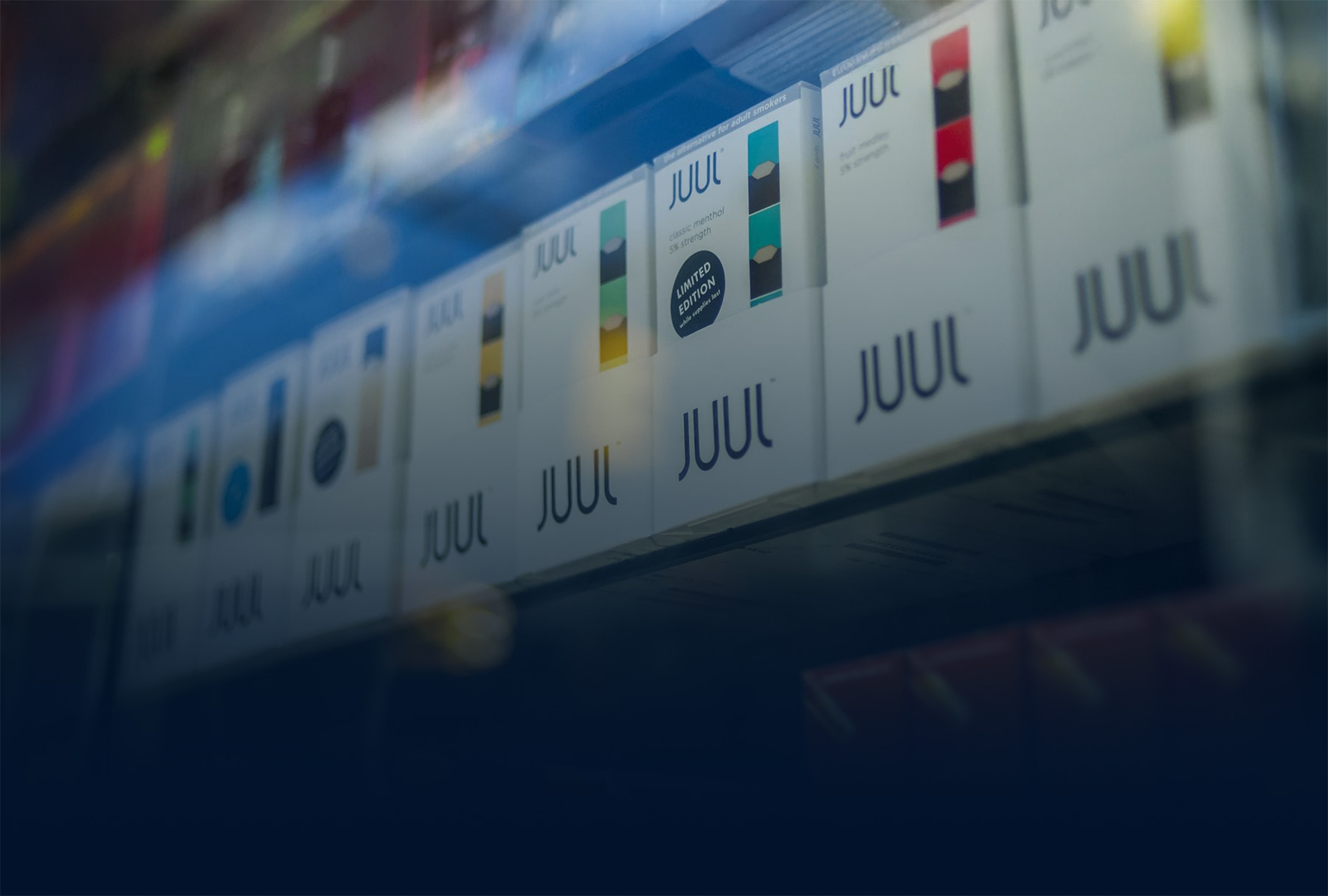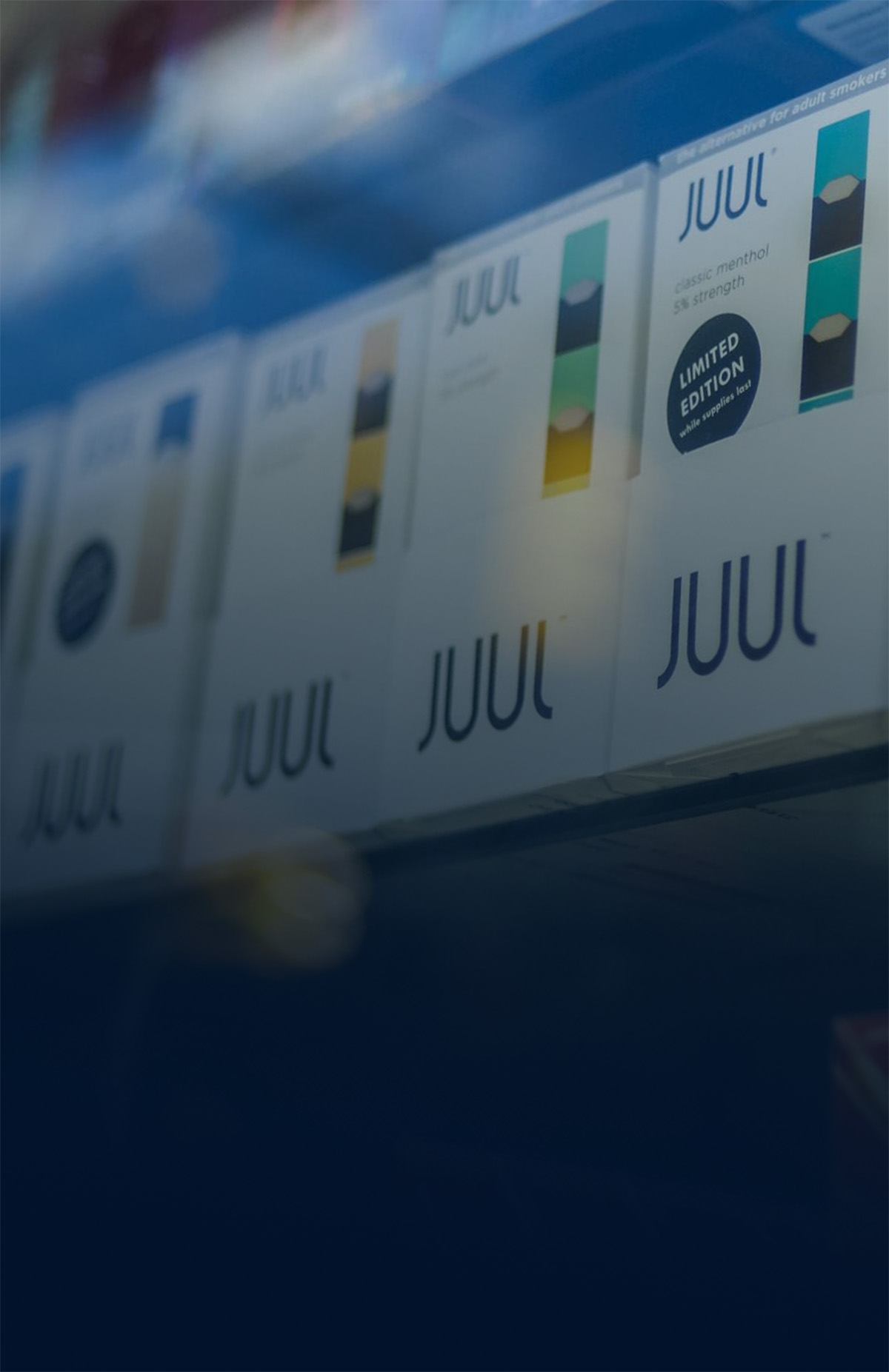

On July 17, 2025, the FDA announced that it had granted marketing authorization (MGOs) for five JUUL Labs products following their successful review under the PMTA process.
The approved products include:
• JUUL Device
• Virginia Tobacco flavor JUULpods (3% and 5% nicotine concentration)
• Menthol flavor JUULpods (3% and 5% nicotine concentration)
These products had been marketed under the FDA's enforcement discretion policy since 2015. This approval marks JUUL’s first official authorization under the U.S. regulatory framework for e-cigarettes, serving as a critical milestone in its long-term compliance strategy.
Key Dates and Events in JUUL's PMTA Timeline
July 30, 2020
JUUL submitted PMTAs for the JUUL Device and Virginia Tobacco and Menthol JUUL pods (3% and 5% nicotine).
2022
June 23: FDA issued MDOs, citing insufficient toxicological data and concerns over chemical leaching and genotoxicity.
July 5: FDA granted JUUL an administrative stay, allowing products to remain on the market during further review.
July 29: JUUL filed a supervisory appeal to the FDA seeking review of the MDOs.
December: JUUL submitted a new PMTA for a tobacco-flavored pod for the current JUUL system.
2023
July 19: JUUL submitted a PMTA for its Next-Generation Vapor Platform with tobacco-flavored pods.
December: JUUL submitted a PMTA for its Next-Generation Vapor Platform with menthol-flavored pods.
June 6, 2024
FDA officially rescinded the 2022 MDOs and resumed substantive PMTA evaluation.
July 16, 2025
FDA granted marketing authorization for five JUUL products.
Three Key Drivers of JUUL’s PMTA Success
1. Robust Scientific Evidence: Demonstrated Effectiveness for Adult Smokers
JUUL submitted over 110 scientific studies covering toxicology, clinical pharmacology, product engineering, and behavioral science. Among them, a two-year longitudinal study tracking adult smokers showed that a significant number successfully switched completely from combustible cigarettes to JUUL’s tobacco or menthol-flavored products. Importantly, the FDA stated that behavioral studies submitted by JUUL Labs indicated that the product demonstrated low appeal and usage among non-smokers, particularly among youth.
2. Youth Risk Mitigation: How JUUL Addressed Underage Use
As part of its PMTA submission, JUUL outlined a comprehensive set of youth prevention measures spanning sales controls, distribution oversight, age-verification protocols, and responsible marketing practices. The company provided supporting data on the implementation and effectiveness of these measures, including in-store age verification, marketing content restrictions, retail audits, and post-market surveillance. JUUL also reported a more than 98% reduction in underage use of its products since 2019. In its evaluation, the FDA acknowledged that youth use of JUUL products has notably declined, stating that previous concerns regarding youth misuse have been “somewhat mitigated.”
3. Meeting the APPH Standard: Public Health Appropriateness
The FDA ultimately determined that JUUL’s products meet the “Appropriate for the Protection of Public Health (APPH)” standard under the Tobacco Control Act. This standard requires a population-level assessment of potential benefits for adult smokers versus potential risks to non-smokers, particularly youth.
While JUUL remains one of the top brands used among youth, the FDA noted that usage rates have been steadily declining and that youth risks are now significantly mitigated through corporate interventions. Overall, the agency concluded that the public health benefits outweigh the remaining risks.
Implications of JUUL's PMTA Authorization
JUUL’s journey from denial to approval demonstrates that the PMTA pathway is not a one-shot decision. With sustained submission of high-quality evidence, companies can still secure market access through scientific reassessment.
Real-world evidence (RWE) is essential for evaluating how products like JUUL are used in everyday settings and for understanding their broader public health impact. Unlike clinical pharmacokinetic studies conducted in controlled environments, RWE reflects actual usage patterns. These include transitions from smoking to vaping, reductions in cigarette consumption, and observed levels of dependence. In JUUL’s case, the FDA considered such behavioral data a significant factor in its authorization decision.
This approval marks an important milestone for JUUL and provides useful guidance for the industry on regulatory strategy and evidence building. While the PMTA process remains complex, it can be navigated with strong scientific support, rigorous monitoring, and long-term regulatory commitment. Notably, the inclusion of menthol flavors suggests that approval may also be possible for non-tobacco options when backed by sufficient data.
For manufacturers and brands, achieving regulatory compliance in the U.S. remains a long and challenging process, requiring strategic planning, time, and resources.
ABOUT HANGSEN
Hangsen is one of the largest global e-liquid manufacturers. Since we established the industry’s manufacturing standards and introduced VG+PG as the base liquid for e-liquids, our business has expanded to over 80 countries and regions worldwide. The world’s top e-cigarette brands and tobacco enterprises are our loyal clients. With over 60,000 e-liquid flavor formulations developed to date, Hangsen continues to empower global vape brands with premium e-liquid manufacturing solutions. Innovation, efficiency, safety, and stability are the cornerstones of our ongoing pursuit.
For inquiries about e-liquid manufacturing services, please contact us at service@hangsen.com